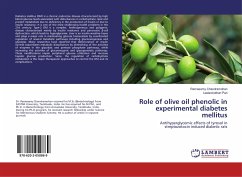
Gluconeogenesis
Versandkostenfrei!
Versandfertig in 6-10 Tagen
26,99 €
inkl. MwSt.

PAYBACK Punkte
13 °P sammeln!
Gluconeogenesis (abbreviated GNG) is a metabolic pathway that results in the generation of glucose from non-carbohydrate carbon substrates such as lactate, glycerol, and glucogenic amino acids. It is one of the two main mechanisms the body uses to keep blood glucose levels from dropping too low (hypoglycemia). The other means of maintaining blood glucose levels is through the degradation of glycogen. Gluconeogenesis is a ubiquitous process, present in plants, animals, fungi, and other microorganisms. In animals, gluconeogenesis takes place mainly in the liver and, to a smaller extent, in the c...
Gluconeogenesis (abbreviated GNG) is a metabolic pathway that results in the generation of glucose from non-carbohydrate carbon substrates such as lactate, glycerol, and glucogenic amino acids. It is one of the two main mechanisms the body uses to keep blood glucose levels from dropping too low (hypoglycemia). The other means of maintaining blood glucose levels is through the degradation of glycogen. Gluconeogenesis is a ubiquitous process, present in plants, animals, fungi, and other microorganisms. In animals, gluconeogenesis takes place mainly in the liver and, to a smaller extent, in the cortex of kidneys. This process occurs during periods of fasting, starvation, or intense exercise and is highly endergonic. Gluconeogenesis is often associated with ketosis. Gluconeogenesis is also a target of therapy for type II diabetes, such as metformin, which inhibit glucose formation and stimulate glucose uptake by cells.












